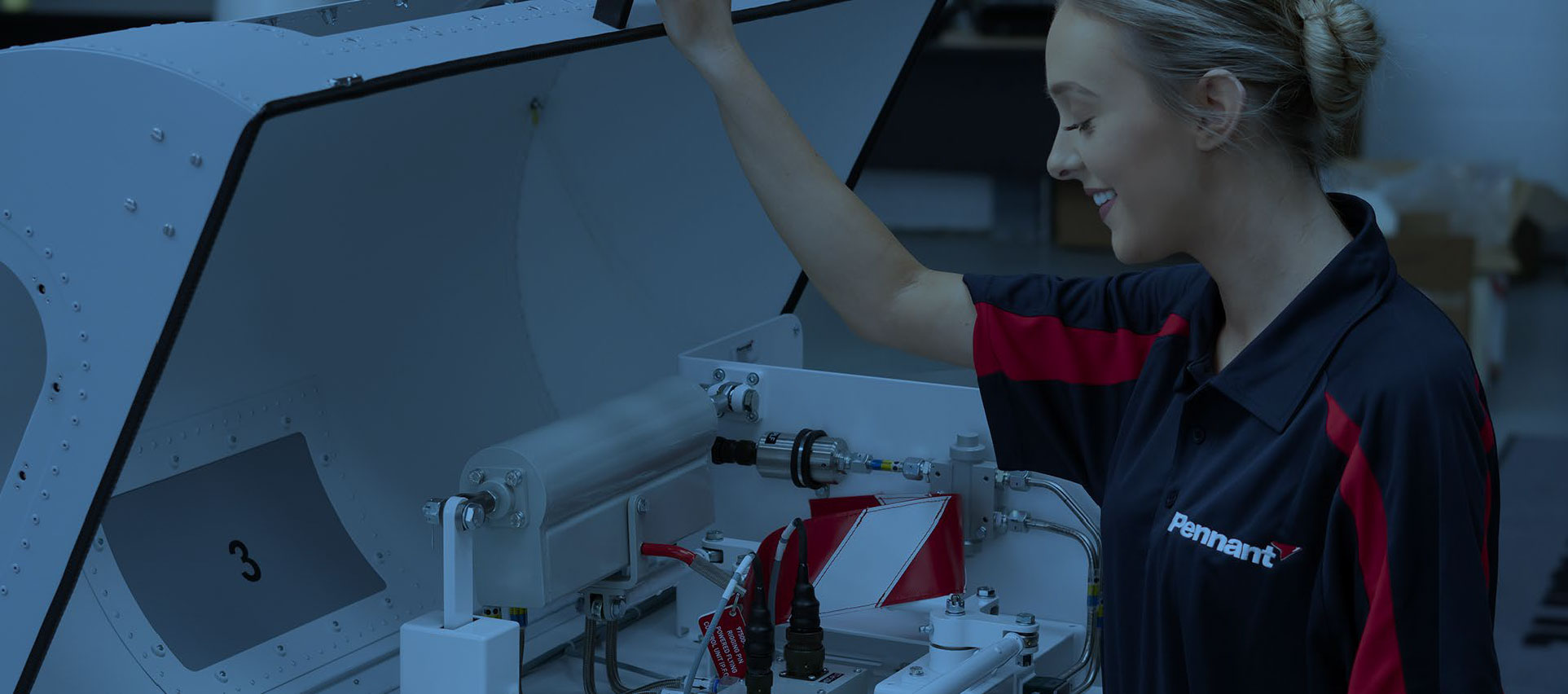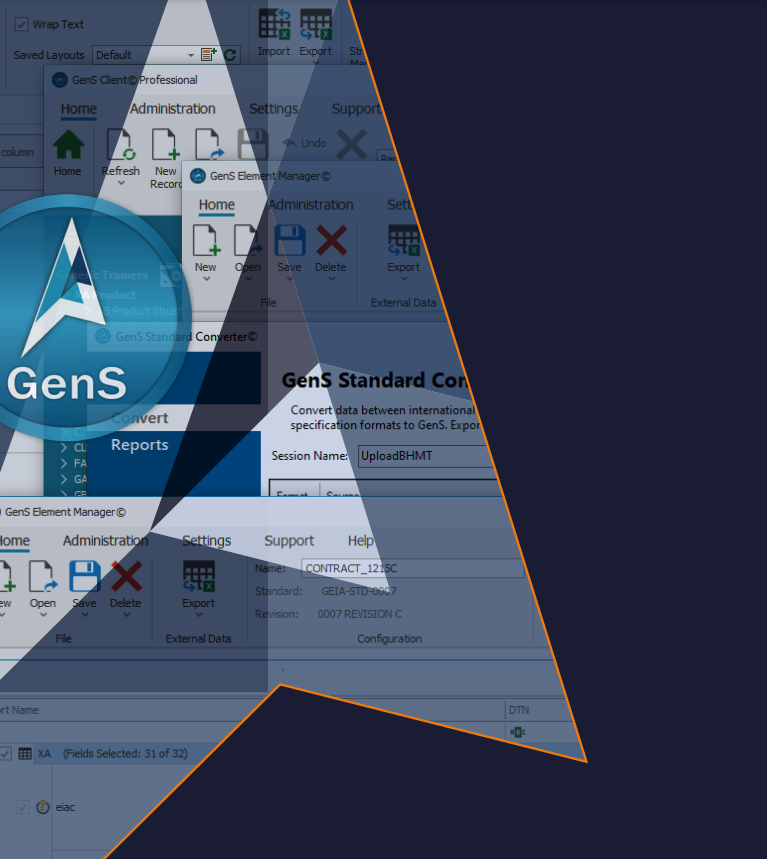Pennant International Group plc (LON:PEN) Chief Executive Officer Phil Walker caught up with DirectorsTalk for an exclusive interview to discuss the repositioning of the business, benefiting from increased defence spending, getting back on track after COVID, progress of the MTE programme and what’s next for the company.
Q1: The business has been repositioned and it’s increasingly going after software deals. Phil, how are you doing in that and how will these software deals make a difference?
A1: It’s quite simple for us really. The business strategy has been focused on expanding our software and services capabilities so if you go back to March 2020, the business acquired a software suite called R4i, which resulted in the business owning a complete end to end solution of software assets that assists people with management of complex data.
Following on from that, we appointed a Director of Sales and Marketing for the group, based in the US, and we’ve been expanding ourselves and our marketing teams. As a result, we’ve been targeting new markets, new sectors and most pleasingly we’ve had success in North America. There was an announcement towards the end of 21/beginning of ‘22 of two new North American commercial aerospace customers.
In effect, the mix of the business has shifted towards higher margin software-linked activities, which now account for over 52% of our revenue in the first half of this year. It’s also meant that actually from a recurring revenue point of view, we’ve got about 65% on our revenue now from software and recurring business and we’ve got a more diversified global business as well.
Q2: Now, the world is a much more dangerous place in the face of Russian aggression and the UK committed to a large increase in its defence spending. What’s your view on the changing landscape and as a defence stock, how might the business benefit?
A2: Well, the Russian/Ukraine conflict has highlighted the importance of national security and strategic investment in capability. My view is that this uncertainty will result in budget expansion, not just for the UK, but across the globe, and I think this will be played out in three or four key areas.
The first one being I can see investment in existing equipment and upgrades as people look to maintain what they’ve got. Clearly, there’s going to be a drive to replenish stocks, there’s a lot of stocks being utilised and people are going to need to replenish what’s been used. I think there’s going to be significant maintenance and upgrade spend as well from defence organisations and the final one is probably the most important longer term trend is that this is driving investment in the next generation of equipment and associated training systems.
What does that mean? From our perspective, we’ve had a longstanding relationship with defence institutions and OEMs and the company’s well placed through its technical training capabilities to support this grown requirement.
Alongside this investment, there’s also obviously going to be the need for the requirement for people to make maintain complex data and again, our integrated product support capability and solutions are aligned with this requirement.
In summary, I think the landscape for Pennant International is one of opportunity.
Q3: The business took a big hit during COVID, have you managed to get things back on track?
A3: We believe so and I think the H1 results demonstrate that return to positive performance with great news.
As we mentioned previously, the business has in effect been repositioned and as part of this strategy, we’ve also completed a wide ranging cost reduction exercise, and we’ve removed in excess of £1 million from an employee cost base.
As a business, we actually targeted achieving a breakeven EBITDA of about £60 million in revenue and in effect, the combination of business mix and the decisive action taken means that this is now achievable for us about £13 million, which is far more resilient as business.
Again, as you mentioned, we’ve recently disposed of excess property, we announced a couple weeks back the disposal of our HQ for £2.1 million and this is driven as we all know by the shift to hybrid home working, coupled with the change in business mix.
So, the business is back on track and it’s forecast to be profitable for the year as a whole.
Q4: Now, in terms of legacy contracts, is the MTE programme with General Dynamics reaching a conclusion?
A4: The MTE programme has been well publicised and from our perspective, we’re almost complete. We delivered two devices in the first half of the year and the final two devices are scheduled to be delivered soon, once the facility is actually finished.
We fully expect all four training devices to be completed during the second half this year and, again well publicised, this will remove a loss making legacy contract, which has suppressed our earnings in recent period and allow us to actually show the underlying performance the business is driving.
Q5: So, what’s next for Pennant International? What should people be looking out for?
A5: The H1 trading update was encouraging. I think I mentioned a return to a positive EBITDA and the first priority for us is to continue this progress towards sustainable growth and recurring revenues, and I think we’re well on track to do that.
We talked at the start about investment moving towards more complex, higher capability equipment, this is going to require increased complexity and training and maintenance, which aligns neatly with our strategy and presents us with significant opportunities.
People should look out for our innovative new products. First and foremost, our re-engineered software solution GenS, which is our replacement for the long standing and well known OmegaPS product. This is important for a number of factors, but mostly because this will transcend sectors, whereas its predecessor product was defence only, and they should all be looking at for software-led, innovative modular training solutions, such as our engine systems type trainer, which can be sold on various commercial models.
Both of these new solutions alongside our aligned strategy are designed to address this change in market dynamics and having repositioned the business during the last couple of years, return to profitability and with £13 million worth of orders already contracted for ‘23, the outlook is looking positive for the group.










































